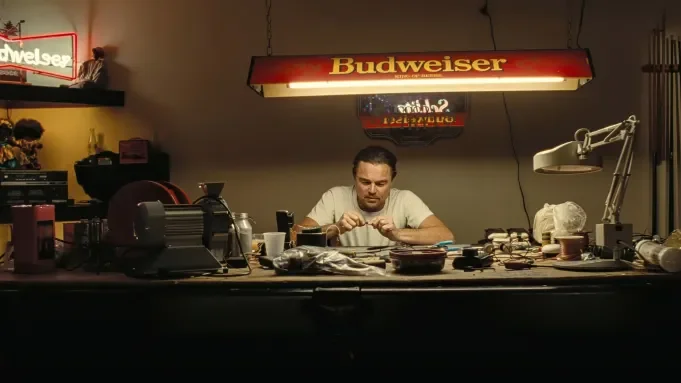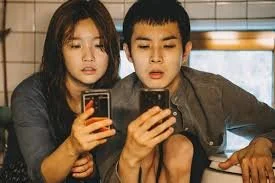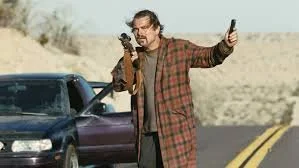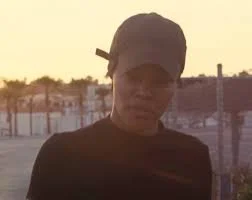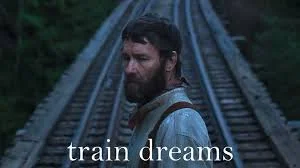What I'm Reading, What I'm Watching - Fall 2025
What I’m watching:
When Parasite came out in 2019 Covid wasn’t a word most of us were familiar with. Yet Marvel and the like had been dominating movie theatre screens for years already, streaming and smartphones and gaming and prestige television and on and on had already taken over our leisure lives, and the cheap and sad amusement park aesthetic of “Canada’s” Cineplex movie chain that wouldn’t impress an eleven-year-old boy never mind a grownup remained and still remain today a status quo we take for granted. As if better were not possible.
In other words, the movie going experience was already halfway into the toilet. And again, this before Covid! Then, out of that …. mess emerged a Korean movie by a director only a film nerd might have heard of. Parasite would go on to be the first foreign film in history to win best picture at the Oscars. It was also selected as the best movie of this century according to a recent NY Times poll.
I saw Parasite alone the first time. As I tend to see movies. When they knock my socks off, or, rather, when I think they have and I want to go back to confirm, to understand, to get why, I hurry back to see them again, ideally with my wife, if she’ll go. A good friend otherwise. Parasite I saw in theatres three times. The second with my wife. The third with a set of friends because I get that excited about movies I love and feel a throbbing compulsion to spread the word like a religious zealot proselytizing the gospel. I’m not convinced that Jesus, God, faith, good movies, quitting smoking or political views are things you can browbeat people into believing or doing, but some bad habits remain despite our advancing age.
Because Parasite was that good. The first thing I’d seen in adult memory that hit me in the unique way it did. I have seen countless films shot by legit filmmakers (which is to say those rare folk who understand the visual and auditory medium that film is and how to use it to its full - think of a David Fincher shot, or a Quentin Tarantino needle drop) — the kind of movie I tend to urge others to come see with me “Cause you have to! On a big screen!” With Parasite it was that, lord knows it was that, but it was also something more. Here was a film that begged to be seen communally, because early on, you may recall, it is that funny. Early on it is a comedy and as Bill Hader, I think it was, on a Rewatchables (podcast) episode on the movie Airplane, pointed out: great comedies aren’t made for the big screen anymore and he was speaking longingly, nostalically, for that experience that old timers like he and I clearly remember growing up in the 80s, of busting a gut with others, as guts are generally meant to be .. bust. With Parasite, it is of course that remarkable feat of a tonal shift from comedy to something very, intensely different - that jolt, where one minute you’re laughing, hard, with the folks surrounding you, and the next you’re tense as hell, and so is everyone else. Which ups the fun. And the tension. The very definition of a ride of a movie. But not a kiddie ride, for once (in this century). A movie that happened also to be about something. A something (class, greed, money) I’d argue matters now more than ever.
I’m not a film critic. I don’t process these things nearly as quickly as journalists do/must. Hence the screed about the movie that came out six years ago and the far fewer words to recommend the one that’s actually out now, in theatres (if barely still). Because speaking of rides of movies about something, that are still in theatres: Paul Thomas Anderson’s new movie One Battle After Another is the first post-Covid movie I’ve seen in a theatre that I all but raced back to see a second time. I hate ruining movies, so just the barest specs in case they entice: it stars Leonardo DiCaprio and he is particularly good because he’s cast against the jaw-clenching intense type he’s been playing for so long; this is a new phase of his career where he shines playing nervy and funny (see also, Once Upon a Time in Hollywood, if only for the DiCaprio parts) but here he is also caring and sweet and wholly believable as a (fuck up of a loving) father; it also “stars” Benicio del Toro, who, also playing someone (Sensei) totally different from what we’ve seen him do before, does more with as few screen minutes as he has than most do over a career, and you will remember Sensei and you will love Sensei. In a sense the movie is like if Wes Anderson and Quentin Tarantino split the difference and made an action movie, with the fun and verve those directors bring in spades, but less precious and cute and far more moving as a result. This is an (arthouse, thinking person’s) action movie but it’s funny! The running time will put you off and you will be mistaken. I’ve never been in a longer movie that felt so short. It flies!
The Parasite screed did have a purpose, I swear. Because One Battle After Another is likely to win best picture too, because it is that good as well, because it also pulls off the tonal shift trick, though the humour hits harder the second time I will admit, but it’s damned funny as well as harrowing as well as managing to use the backdrop of something very current and very real and very political without once feeling didactic, or lecture-like, which is to say it’s never boring or soapbox-annoying. Instead, it is amazing. If you can, see it on a big screen (“Cause you have to!”) — it will likely get a wide re-release when Oscar noms come in (it will get nominations for director, best actor, two if not three best supporting actors, etc, etc) — see it for a great director’s vision, for Jonny Greenwood (of Radiohead’s) score and for a Sean Penn comeback that no one saw coming. How am I only mentioning him now?
Also, the three white men mentioned are all of them upstaged by at least one (if not two or even three) African-American woman/women, one of whom who gives one of the most stunning performances of the year. Her name is Teyana Taylor. She plays Perfidia Beverly Hills. That’s right. Perfidia Beverly Hills.
One other movie I loved and saw just this week at the TIFF Lightbox: Train Dreams. Clint Bentley, the director of Sing, Sing’s (which I still need to see!) followup. A prose poem of a movie, as the critics aptly put it. If elegy and beauty and loss and nature (America’s Pacific Northwest) are your bag .. this is a movie so filled with the hard stuff of being human set against the backdrop of old growth forest at its grandest. An elegant reminder of how inextricably linked loss and beauty can be. The kind of tonic for those of us who want to get off a screen, by going to see stuff on the big screen (or your Netfix small screen, sigh). The kind enamoured of nature, silence and the human spirit.
What I’m reading:
In a New Yorker Festival talk I heard, Zadie Smith referenced this Karl Ove Knausgaard essay as a writer-artist contends with living and “finding mystery” in a digital age. For the topic and the content but oh my for the writing too. The depth and original thought that academic writing aspires to, but with the clarity of great journalism and the storytelling prowess of a novelist who can add texture and colour to balance the philosophy. The essay begins:
I’m also (re-)reading Somerset Maugham’s Of Human Bondage. It’s a 1940s Modern Library edition I may have bought second-hand somewhere or inherited from my mother’s library - I can’t honestly remember. Though the novel is 700+ pages, my copy (that I took a large image of) is small as a bedside bible, which is I think what most people on the subway probably think I’m reading if they don’t happen to catch the title. I have to admit the opening chapters seemed rather meandering and, honestly, if I hadn’t read it and a couple other Maugham novels I loved in my 20s (The Razor’s Edge; The Moon and Sixpence) I’m not sure I’d have given this novel enough of a chance. Glad I have. What a read! Maugham was no stylist, but he espoused some fascinating philosophy on the human condition and mostly was just a good old-fashioned storyteller. A guy who lived and worked in Paris when everyone went to Paris to paint and try and become the next Pissaro and Monet. So you get that. To live in that. To experience it first hand. But also, Maugham writes about ambition and love, mostly about extravagant and heartbreaking failure on both fronts, like nobody’s business. If curious, give the novel enough of a chance to arrive at the Mildred story; it’s as captivating and insane-making a tale as any I’ve read. I am a perennially slow reader and I’ve never turned pages so fast as over the Mildred storyline.
One of the greatest of all reading pleasures: reading a tale that speaks to how very dumb we humans can be when our desire gets the best of us.

